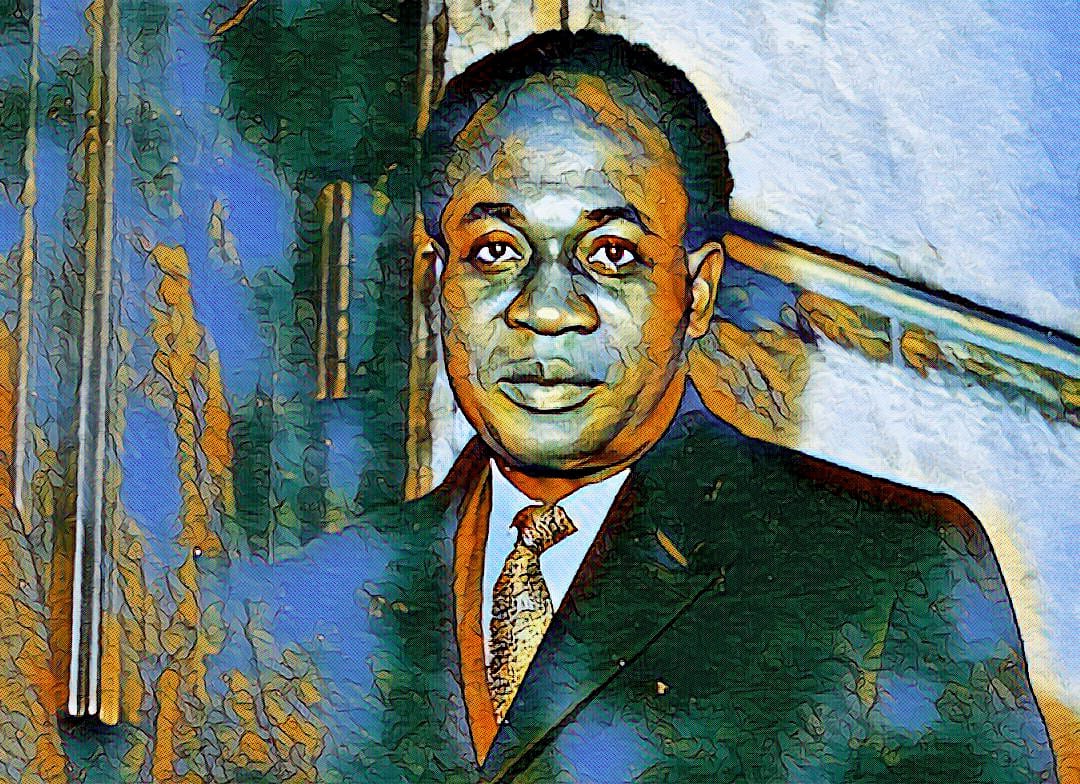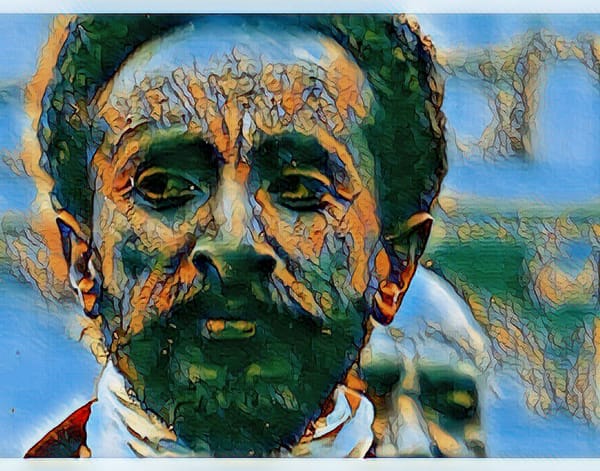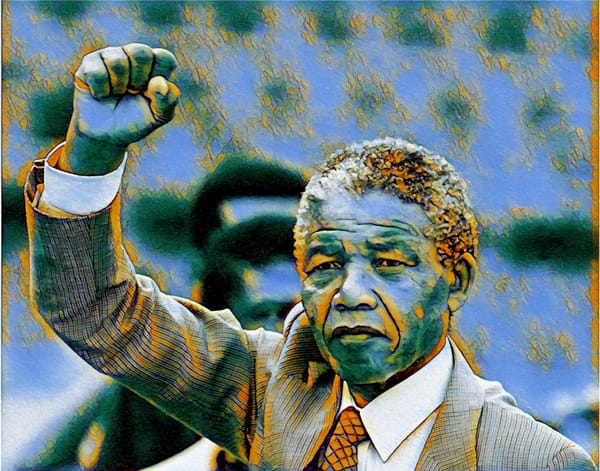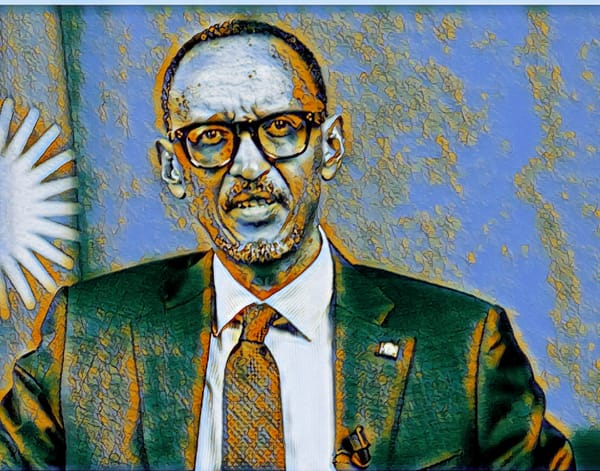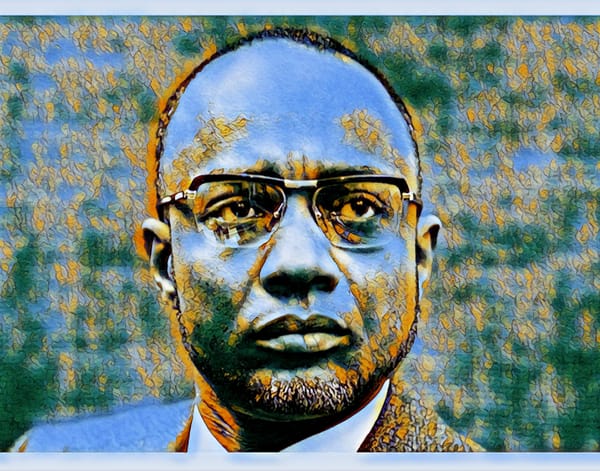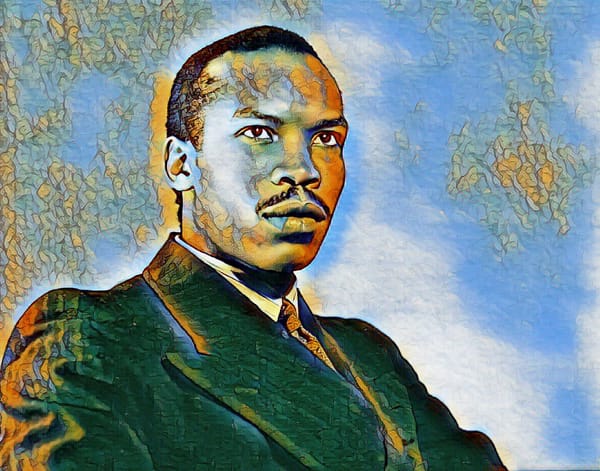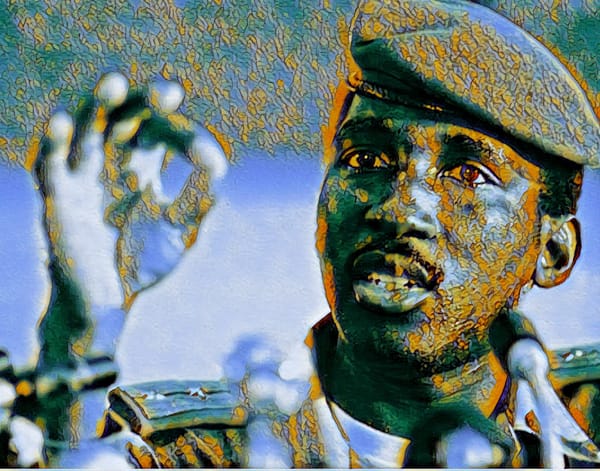The Mission For A United Continent

Unto Us A Saviour Is Born
In the bustling streets of Accra, where the aroma of kelewele (spiced fried plantains) danced in the air and traditional highlife music played from old radios, there was more than just the usual hum of daily life⸺ beneath the liveliness of market haggles and children's laughter, a deeper, more profound rhythm pulsed. Ghana, then the Gold Coast had been swathed in the heavy cloak of British colonialism. Its people, proud descendants of powerful kingdoms, bound by the chains of foreign policies and the whims of distant rulers.
Amidst this despair, the first rays of dawn after a long night seemed to emerge. On September 21, 1909, in the unassuming hamlet of Nkroful, nestled in the heart of the Gold Coast (modern-day Ghana) an 'Osagyefo' was born. Kwame Nkrumah, a force that would go on to rewrite the destiny of an entire nation.
Friends and early acquaintances spoke of a child who was introspective yet curious, respectful yet questioning. He bore a certain solemnity, a weight of thought peculiarly exceptional for his age. This introspection might have stemmed from observing the dichotomy of his homeland – a rich, ancient culture under the yoke of a foreign power.
"Thought without action is empty and action without thought is blind." - Kwame Nkrumah
Nkrumah's surroundings were a juxtaposition of vibrant local culture and the oppressive structures of colonialism. This duality of his environment, both nurturing and inhibitive, played a significant role in shaping the young Nkrumah.
The American Dream
At the age of 26, Kwame Nkrumah set his sights on America, to pursue what is often referred to as the "American Dream." For many, this dream evoked images of prosperity and success. However, for Nkrumah, it was not just about personal advancement.
His decision to move from Ghana to America was not one made lightly. It was vast, crossing oceans and merging continents. And in the early 20th century such a journey was a monumental leap, both geographically and culturally. But Nkrumah's mind was made up, there was no stopping him. The vibrant discussions in the intellectual hubs of Harlem, the profound writings of African American leaders like W.E.B. Du Bois, and the aura of institutions such as Lincoln University beckoned him.
And so, with a heart full of aspirations and a spirit undeterred by the vast journey ahead, young Nkrumah embarked on his American expedition. The journey itself, the transition from Ghana to America, would prove to be an education in its own right.
"We face neither East nor West: we face forward." - Kwame Nkrumah

A Proactive Catalyst
America, for all its tales of liberty and prosperity, was a land full of contrasts. Nkrumah quickly recognized the deep-seated ethnic disparities that ran through the American fabric.
The same fire of resistance that burned in the hearts of Ghanaians resisting colonial rule was mirrored in the passionate speeches of African-American leaders and the determined marches of civil rights activists. For Nkrumah, this transition was both an eye-opener and a crucible of growth.
A catalyst in the truest sense, Kwame Nkrumah was never one to sit on the sidelines.
"The forces that unite us are intrinsic and greater than the superimposed influences that keep us apart." - Kwame Nkrumah
His firsthand experience with systems designed for subjugation both in the Gold Coast and now in America added depth to his activism. He hadn't just studied them; he lived them. It opened his eyes to the fact that in life there are individuals who seize the reins and drive events forward, while others find themselves swept away, passive victims of their own inaction and the actions of others. Change doesn't just happen; it has to be actively sought after, fostered and cultivated with intelligence and determination.
America and the United Kingdom were not merely pit stops on the road to greatness; they were the very arenas where the young Nkrumah honed his worldview and shaped his vision. From joining and organising study groups to crafting thoughtful articles in student newspapers, networking with like-minded individuals to immersing himself in global political ideologies, Nkrumah made it clear: He wasn't waiting for the winds of change to blow in his favour. He had a stake in shaping those winds.
"Countrymen, the task ahead is great indeed, and heavy is the responsibility; and yet it is a noble and glorious challenge". - Kwame Nkrumah
Pioneering Independence
The air was thick with anticipation on the eve of March 6, 1957. Nkrumah stood overlooking a sea of eager eyes, hopeful hearts, and the winds of change. As the Union Jack lowered and the new flag of Ghana rose, there was a palpable energy.
It was a renaissance of African culture, pride, and self-worth. With every speech, and with every rally, he painted a picture of a free, united, and prosperous Africa. His vision wasn't insular. Nkrumah understood that for Africa to truly rise, unity was essential. His ideas of Pan-Africanism inspired leaders across the continent, fostering a sense of brotherhood and shared destiny.
"The independence of Ghana is meaningless unless it is linked up with the total liberation of the African continent." - Kwame Nkrumah
It was under Kwame Nkrumah's leadership that Ghana experienced an unparalleled transformation, arguably the most significant in the nation's history to date. Roads stretched across the nation like intricate webs connecting even the remotest villages to the bustling heartbeat of urban centres. These weren't simply pathways of tar and gravel, but channels of economic opportunity and integration. Schools sprouted up across the land, no longer scarce and far between. They stood as temples of knowledge, where dreams were cultivated and the nation's future leaders were moulded.
The majestic Akosombo Dam, one of his hallmark projects, emerged as a symbol of Ghana's ambition. This was more than merely a dam; it was a testament to Ghana's prowess in harnessing nature for progress. To this day, the Akosombo dam continues to power homes, industries, and projects, highlighting the enduring impact of Kwame Nkrumah's vision.
The Burden Of Freedom
"...and Ghana, our beloved country is free forever". - Kwame Nkrumah

The chains Nkrumah broke were physical, political, and immediate. They were chains forged by foreign powers, suffocating the voice and liberty of a people. However, does the journey Nkrumah began merely conclude with the mere lowering of a colonial flag?
Freedom often encourages the easy temptation to point fingers, to find scapegoats for the issues that plague us. Yet at its core, freedom can be likened to a double-edged sword. While it grants us the autonomy to shape our own destinies, it also bears upon our shoulders the weight of responsibility for determining our own future. It requires us to acknowledge our current realities, no matter how bitter they might be, and then, with unwavering determination, steer our future in the direction we envision. True freedom lies not therefore, just in the absence of external constraints but in the courage to look inward, to accept where we stand, and to take ownership of our path forward.
In a world rife with geopolitical tensions and challenges of all kinds, we are certainly not lacking in opportunities to make an impact on our generation. Life is but for a brief moment in the grand scope of time, yet within this passing span, each of us has been granted the extraordinary opportunity to propel humanity forward. Today, countless Ghanaians, and indeed Africans, express profound gratitude for the audacious leadership of the pioneering president, Kwame Nkrumah.
Few Great Sources
- Documentary - Faces of Africa: Kwame Nkrumah
- Book - Neo-Colonialism: The Last Stage of Imperialism by Kwame Nkrumah
- Book - Ghana: The Autobiography of Kwame Nkrumah

